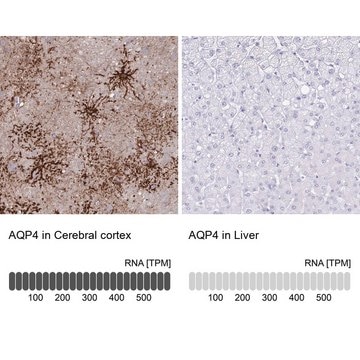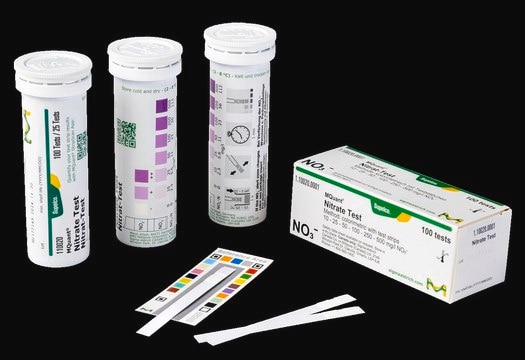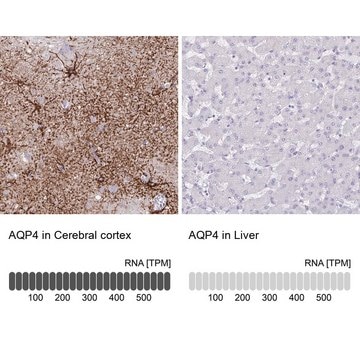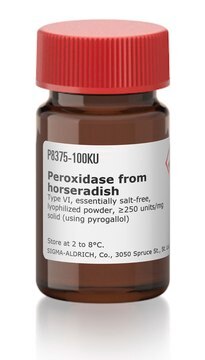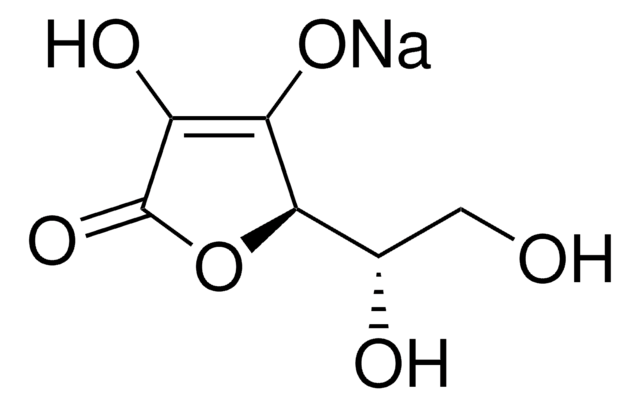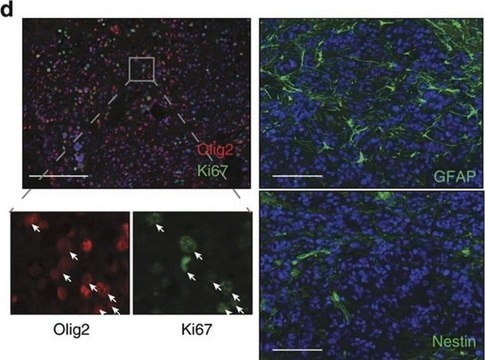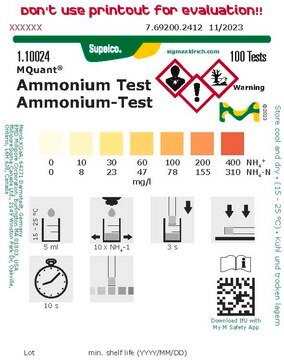MABF986
Anti-Eosinophil Cationic Protein Antibody, clone 1C8.5/D9
Sign Into View Organizational & Contract Pricing
All Photos(1)
About This Item
UNSPSC Code:
12352203
eCl@ss:
32160702
NACRES:
NA.41
Recommended Products
antibody form
purified antibody
Quality Level
clone
1C8.5/D8
monoclonal
purified by
using protein G
species reactivity
human, mouse
concentration
(Please refer to lot specific datasheet.)
technique(s)
ELISA: suitable
immunohistochemistry: suitable
multiplexing: suitable
western blot: suitable
isotype
IgG1
UniProt accession no.
General description
Purified human ECP.
Specificity
Clone 1C8.5/D9 specifically reacted with ECP, but not other granule proteins by Western blotting analysis (Makiya, M.A., et al. (2014). J. Immunol. Methods. 411:11-22).
Application
Western Blotting Analysis: 1.0 µg/mL from a representative lot detected eosinophil cationic protein in 50 µg of human liver and lung tissue lysates.
Immunohistochemistry Analysis: A 1:50 dilution from a representative lot detected Eosinophil Cationic Protein in human small intestine and human colon tissue.
ELISA Analysis: A representative lot was employed as the capture antibody for the detection of purified human ECP, as well as ECP in serum samples from individuals with eosinophilic disorders by sandwich ELISA (Makiya, M.A., et al. (2014). J. Immunol. Methods. 411:11-22),
Multiplexing Analysis: A representative lot was employed as the capture antibody in a bead-based multiplex assay for the detection of purified human ECP as well as ECP in serum samples from healthy donors and individuals with eosinophilic disorders. Prior reduction and alkylation of the serum samples (by DTT and iodoacetamide, respectively) resulted in higher EDN levels (Makiya, M.A., et al. (2014). J. Immunol. Methods. 411:11-22)
Immunohistochemistry Analysis: A 1:50 dilution from a representative lot detected Eosinophil Cationic Protein in human small intestine and human colon tissue.
ELISA Analysis: A representative lot was employed as the capture antibody for the detection of purified human ECP, as well as ECP in serum samples from individuals with eosinophilic disorders by sandwich ELISA (Makiya, M.A., et al. (2014). J. Immunol. Methods. 411:11-22),
Multiplexing Analysis: A representative lot was employed as the capture antibody in a bead-based multiplex assay for the detection of purified human ECP as well as ECP in serum samples from healthy donors and individuals with eosinophilic disorders. Prior reduction and alkylation of the serum samples (by DTT and iodoacetamide, respectively) resulted in higher EDN levels (Makiya, M.A., et al. (2014). J. Immunol. Methods. 411:11-22)
Quality
Evaluated by Western Blotting in human spleen tissue lysate.
Western Blotting Analysis: 1.0 µg/mL of this antibody detected eosinophil cationic protein in 50 µg of human spleen tissue lysate.
Western Blotting Analysis: 1.0 µg/mL of this antibody detected eosinophil cationic protein in 50 µg of human spleen tissue lysate.
Physical properties
~20 kDa observed. Target band appears larger than the calculated molecular weights of 18.39 kDa (pro-form) and 15.52 kDa (mature) due to glycosylation. Uncharacterized band(s) may appear in some lysates.
Physical form
Purified mouse monoclonal IgG1 antibody in buffer containing 0.1 M Tris-Glycine (pH 7.4), 150 mM NaCl with 0.05% sodium azide.
Storage and Stability
Stable for 1 year at 2-8°C from date of receipt.
Disclaimer
Unless otherwise stated in our catalog or other company documentation accompanying the product(s), our products are intended for research use only and are not to be used for any other purpose, which includes but is not limited to, unauthorized commercial uses, in vitro diagnostic uses, ex vivo or in vivo therapeutic uses or any type of consumption or application to humans or animals.
Certificates of Analysis (COA)
Search for Certificates of Analysis (COA) by entering the products Lot/Batch Number. Lot and Batch Numbers can be found on a product’s label following the words ‘Lot’ or ‘Batch’.
Already Own This Product?
Find documentation for the products that you have recently purchased in the Document Library.
Our team of scientists has experience in all areas of research including Life Science, Material Science, Chemical Synthesis, Chromatography, Analytical and many others.
Contact Technical Service